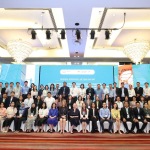Total number of posts 463.
On October 6, 2025, the Government of Indonesia issued Minister of Investment Regulation No. 5 of 2025, which reduces the minimum paid-up capital requirement for foreign-owned limited liability companies (Perseroan Terbatas Penanaman Modal Asing) from IDR 10 billion (approximately USD 640,000) to IDR 2.5 billion (approximately USD 160,000).
This policy move is part of Indonesia’s broader effort to enhance its competitiveness in attracting foreign direct investment (FDI) amid intensifying capital competition across ASEAN. However, the minimum total investment plan per project remains unchanged at IDR 10 billion, in line with Indonesia’s long-standing objective of attracting large-scale and growth-oriented projects.
Lower entry barriers with structured capital requirements
Indonesia now clearly distinguishes between paid-up capital and the total investment plan under its revised investment framework. This separation provides investors with greater liquidity flexibility and aligns capital commitments with project milestones.
Paid-up capital refers to the shareholder equity deposited at the time of company incorporation.
Total investment plan covers the full value of the project as registered in the OSS-RBA system, including capital expenditure and operational costs.
Qualifying expenditures under the investment plan include feasibility studies, licensing fees, machinery and equipment, vehicles, and working capital. Land and buildings are excluded, except in specific sectors such as property, agriculture, and aquaculture.
This structured approach reduces the upfront capital burden and allows foreign investors to stage capital deployment throughout the project lifecycle, rather than committing the full amount at incorporation.
Regional alignment with ASEAN peers
The new capital threshold brings Indonesia closer to ASEAN capital norms. Vietnam generally approves foreign investment projects with capital starting around USD 100,000, depending on the sector. Thailand requires approximately THB 3 million (around USD 80,000), while Malaysia sets thresholds between RM 500,000–1 million (equivalent to USD 105,000–210,000). The Philippines mandates USD 100,000 for export-oriented businesses and USD 200,000 for firms serving the domestic market. Singapore imposes no statutory minimum.
With its new IDR 2.5 billion paid-up capital threshold and IDR 10 billion minimum investment plan, Indonesia now offers a more accessible incorporation regime for foreign investors while retaining the classification of foreign-owned enterprises as large-scale businesses.
MSME protection and sectoral restrictions maintained
The reform does not alter Indonesia’s commitment to protecting domestic micro, small, and medium enterprises (MSMEs). Foreign ownership remains restricted or prohibited in sectors reserved for MSMEs. In certain cases, mandatory partnerships with local cooperatives or MSMEs are required and must be properly documented via the OSS-RBA platform.
The reduced threshold also does not apply to highly regulated sectors. For example: Commercial banks must maintain at least IDR 10 trillion (approx. USD 640 million) in capital; Insurance companies require IDR 150 billion (approx. USD 9.6 million); Companies operating in special economic zones (SEZs) are subject to separate capital rules.
Importantly, existing foreign-owned companies that previously complied with the IDR 10 billion paid-up capital remain fully compliant, as the regulation is not retroactive.
Compliance, incentives, and oversight mechanisms
Under the new rule, the paid-up capital must remain within the company for at least 12 months, unless legitimately used for operational expenses. Regulatory compliance is monitored through filings in the OSS-RBA system and regular LKPM (Investment Activity Reports).
Foreign investors who meet compliance standards and reporting obligations may become eligible for various investment incentives, including: Tax holidays, Tax allowances, Import duty exemptions, and Customs facilities. Conversely, violations may result in warnings, license suspension, or revocation of incentives.
Strategic implications for investors
The lowered paid-up capital requirement offers foreign investors greater flexibility in capital structuring. Instead of committing the full capital amount at incorporation, businesses can synchronize capital injections with their operational and financial needs.
This is particularly beneficial for sectors like technology, services, and digital infrastructure, where early-stage costs are often centered on human resources and working capital rather than fixed assets. At the same time, capital-intensive sectors such as manufacturing or natural resources may still opt to inject larger capital amounts upfront — for creditworthiness or to meet joint venture requirements.
Overall, the revised policy is seen as enhancing the ease of doing business for foreign investors in Indonesia while preserving regulatory discipline, project scale expectations, and long-term economic objectives.
Source: Compiled by the Multilateral Trade Policy Department, Ministry of Industry and Trade of Viet Nam














